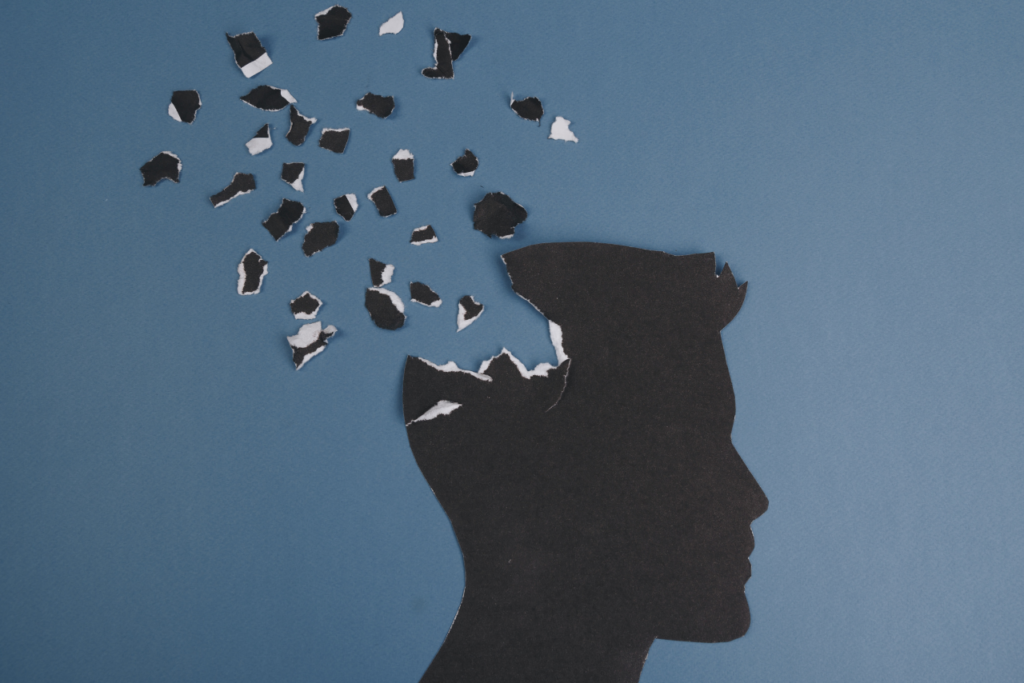Drugs that cause memory loss include alcohol, benzodiazepines (like
Xanax or Valium), opioids, antidepressants, antihistamines, sleep aids, and muscle relaxants. Illicit drugs such as marijuana, cocaine, and ecstasy can also impair memory over time. Understanding the impact of these substances is crucial for protecting brain health and preventing cognitive decline.
How Do Drugs Cause Memory Loss?
When talking about drugs that cause memory loss, it’s important to understand that there are several different types of memories. The two top-level or general categories of memory are short-term and long-term:
- Short-term memory: When you acquire new information, your brain temporarily encodes it as a short-term memory. These memories typically last no more than 30 seconds. Experts believe they are formed in the prefrontal cortex or the hippocampus.
- Long-term memory: Some short-term memories quickly fade, like forgetting the name of someone you just met. Others are stored as long-term memories, allowing you to recall your best friend from first grade even years later. Research suggests the hippocampus plays a crucial role in transferring short-term memories into long-term storage.
In addition to the short- and long-term descriptors, memories are also classified by what type of information they contain.
Examples include:
- Spatial memories are related to the location of objects. If you can walk through your living room in the dark without tripping over your couch, or drive across town to a specific location without using a map or GPS, you can thank your spatial memories.
- Verbal memory stores and recalls information transmitted to you through speech or writing.
- Episodic memory relates to events from both your near and distant past. If you can remember what you had for lunch last week or how you felt when you graduated from high school, those are episodic memories.
As we’ll discuss in the next section, some drugs that cause memory loss prevent the formation of long-term memories. Others may affect specific types of memories, such as verbal or spatial memory.
What Drugs Cause Memory Loss?
Several drugs can cause various forms of memory loss. Three types that can have a profound negative impact on your ability to store and recall information are alcohol, benzodiazepines, and club drugs.
Alcohol
Alcohol affects memory by disrupting the brain’s ability to form and store new long-term memories. Research indicates that the severity of alcohol-induced memory loss becomes more severe the more a person drinks.
Blackouts are perhaps the most obvious example of this effect. In the aftermath of a binge drinking episode, a person may have little to no memory of what transpired while they were intoxicated. This appears to be due to alcohol-related dysfunction within the hippocampus.
Excessive drinking can lead to two types of blackouts:
- Fragmentary blackouts involve gaps in memories but not complete memory loss. If a person remembers some aspects of what went on while they were drunk, but cannot recall other moments that occurred during the same period, they are likely suffering from a fragmentary blackout.
- En bloc blackouts involve total memory loss or complete amnesia. An en bloc blackout can cover a period of several hours during which a person’s brain was impaired to the point that no memories were created or stored.
According to the National Institute on Alcohol Abuse and Alcoholism (NIAAA), a person is most likely to experience a blackout when their blood alcohol content (BAC) rises above 0.16%.
Benzodiazepines
Doctors often prescribe benzodiazepines, or benzos, to treat generalized anxiety disorder (GAD). They also commonly use these drugs to address social anxiety disorder (social phobia) and panic disorder.
This class of drugs includes lorazepam (sold as Ativan), diazepam (Valium), alprazolam (Xanax), and midazolam (Versed).
A September 2023 review in the journal Frontiers in Pharmacology reported the following about the impact of benzos on memory:
- A 10 mg injection of diazepam caused diminished recognition memory in 90% of women. This effect began within three minutes of the injection and lasted for about an hour.
- A study involving rodents found that lorazepam and midazolam can cause anterograde amnesia. This condition is a temporary inability to form and store new memories.
- Separate rodent studies determined that lorazepam’s impact may include impairments in both spatial memory and recognition memory.
Club Drugs
The informal category of club drugs includes GHB, MDMA (ecstasy or molly), Rohypnol, and ketamine. Though each of these substances can affect people in different ways, they have all been associated with some form of memory loss. For example:
- Multiple studies have linked frequent ketamine use with various forms of memory problems, including impairments in short-term memory, verbal memory, and spatial memory.
- A systematic review of 43 published reports determined that heavy GHB use can lead to “acute memory and emotion processing deficits.”
- A European study involving 60 participants who were “light to moderate” users of MDMA found that the drug may cause both short-term memory loss and the formation of false memories.
- Rohypnol has earned the nickname “the date rape drug” due to its ability to incapacitate victims and prevent them from recalling the details of their assault.
Other Drugs
The substances listed above aren’t the only ones that can cause memory loss. Researchers have also found memory-inhibiting effects in several other drugs, including:
- Cannabis: Impaired short-term memory is one of the common effects of cannabis (marijuana) intoxication. Research suggests that frequent, long-term marijuana use may have a detrimental impact on verbal memory.
- Opioids: An October 2019 study in Frontiers in Psychiatry found that test participants who were addicted to opioids showed “significant impairments” in visual and spatial memory.
- Stimulants: A small study involving young adults ages 18-35 found that participants who received moderate doses of the stimulant dextroamphetamine experienced “recall intrusions and false recognition” on memory tests that involved pictures and words.
- Hallucinogens: A 2021 review found that large doses of drugs such as LSD, ayahuasca, and psilocybin may contribute to deficits in spatial, verbal, semantic, and non-autobiographical episodic memory.
The best way to avoid drug-related memory impairments is to end your substance use.
Know that help is available if you struggle with addiction to drugs linked with memory problems. Treatment works and can make a significant difference. When you get effective care from a reputable addiction treatment provider, you can escape the constraints of compulsive drug use. This is the first step toward living a healthier life in recovery.

Learn More About Addiction Treatment in Georgia
Serenity Grove offers a full continuum of personalized services for adults who have become dependent on alcohol, opioids, stimulants, and other addictive substances.
Treatment options at our drug rehab center in Athens, Georgia, include detox, residential care, a partial hospitalization program (PHP), an intensive outpatient program (IOP), and an outpatient program (OP).
To learn more about how we can help you or a loved one, or to schedule a free consultation, please visit our admissions page or call us today.



